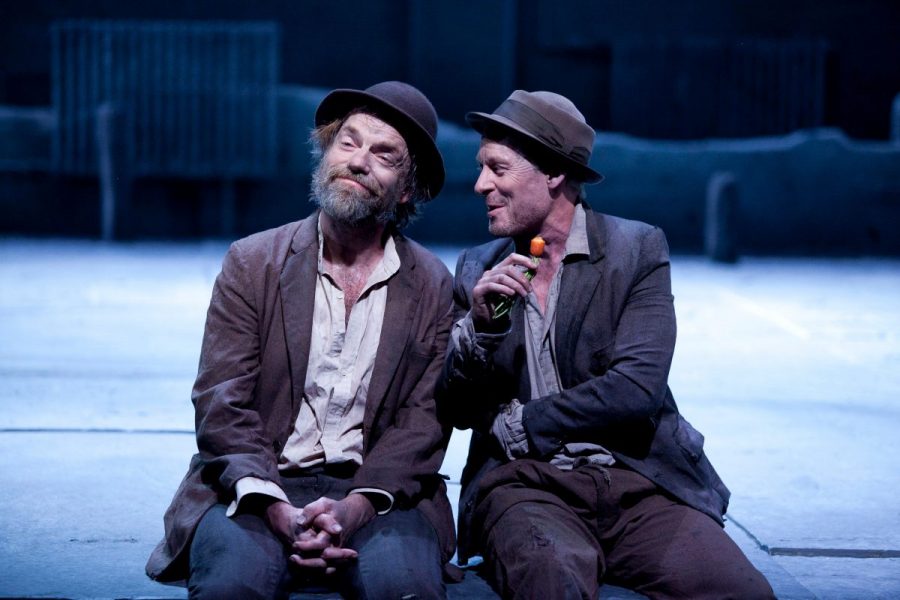International Beckett Season @ The Barbican, London, from Tue 2 Jun to Sun 21 Jun 2015
‘The essential doesn’t change’
So speaks Vladimir, reflecting on his attitude to life’s travails. He could just as easily be talking about Waiting for Godot.
Samuel Beckett’s first stage play is arguably one of his most accessible, and the adaption by the Sydney Theatre Company is no exception. The laughs comes thick and fast, with Beckett’s witty dialogue and proclivity for slapstick shining through in the performances of a talented cast.
The stage is almost empty, as is typical for Godot, with a single tree stretching from up from the stage floor all the way into the rafters and out of sight. The crumbling remains of a building hint at a theatre, long destroyed and abandoned.
The two ‘protagonists’ of Godot talk constantly and incessantly without any particular purpose. There are clues, hinted at in Beckett’s writing and brought to life through the frantic antics of Hugo Weaving and Richard Roxburgh, as Vladimir and Estragon respectively.
A laugh that doesn’t quite reach the eyes and a panicked hand gesture hinting at an unspoken fear, these are the subtle moments that bring meaning to the empty babbling of the play’s characters.
Philip Quast is a booming, domineering Pozzo, flicking matches to the ground as he lights his pipe, his servant Lucky (Luke Mullins) wheezing beside him. The casual cruelty of the characters speaks to the fragility of civilised behaviour as the complex power dynamic dictating the quartet constantly shifts.
‘A moment ago you were calling me Sir, in fear and trembling. Now you’re asking me questions. No good will come of this!’
This production approaches Beckett’s creations as human beings, which necessarily encourages the audience to question the motivations behind their actions. Why do Vladimir and Estragon really return to the same place every day, at the same time?
But with Beckett, as always, there is only one answer.
They are waiting for Godot.
